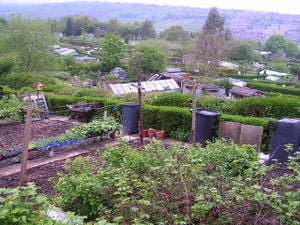
 ‘We’re totally pay as you can’: the UK restaurant prioritising people and planet, theguardian.com (Mar 06, 2024)
‘We’re totally pay as you can’: the UK restaurant prioritising people and planet, theguardian.com (Mar 06, 2024)  A single person on universal credit now receives 20% less than what it costs just to eat and keep warm, theconversation.com (Jan 29, 2024)
A single person on universal credit now receives 20% less than what it costs just to eat and keep warm, theconversation.com (Jan 29, 2024)  How a programme giving millions to residents to improve their neighbourhoods also risks entrenching inequality, theconversation.com (Dec 19, 2023)
How a programme giving millions to residents to improve their neighbourhoods also risks entrenching inequality, theconversation.com (Dec 19, 2023)
Events[edit | edit source]
No events found.
Networks[edit | edit source]
- The More in Common Network, greatgettogether.org, added 09:29, 2 December 2021 (UTC)
Resources[edit | edit source]
Warm welcome spaces[edit | edit source]
- Warm Welcome Campaign
- Despair and Dignity – Warm Spaces and the need for Government to catch up with Civil Society, on right-here.org (date not found), We’re Right Here is a campaign working to build a united movement for community power, added 17:32, 19 December 2023 (UTC)
Video[edit | edit source]
Maps[edit | edit source]
Citizens data initiative[edit | edit source]
- UK Poverty Statistics, jrf.org.uk
- Briefing 17: Who owns all the land? Inequality Briefing
Research[edit | edit source]
- Hopeful Towns, a HOPE not hate Charitable Trust Project, added 15:37, 19 January 2021 (UTC)
- Minimum Income Standard for the UK, Loughborough University
- Poverty and Social Exclusion
Apps for sustainability[edit | edit source]
StreetLink, enables the public to alert local authorities in England about people sleeping rough in their area. W
Funding community action[edit | edit source]
- Community groups tackling loneliness to benefit from £4m fund. Local Connections Fund will be open to charities and interest groups that reduce social isolation. Book clubs, walking groups and other community projects will be able to apply for a £4 million fund designed to help reduce loneliness in the coming months.
The Local Connections Fund – made up of £2 million from the Government and £2 million from The National Lottery Community Fund – will be used for hundreds of small grants worth between £300 and £2,500.
These investments are designed to help local organizations bring people and communities together as the country recovers from the coronavirus pandemic. Dec 9, 2020[1]
Other resources[edit | edit source]
- Loneliness resource pack, Joseph Rowntree Foundation
Campaigns[edit | edit source]
- We can't wait for care, ageuk.org.uk, added 10:12, 6 July 2023 (UTC)
- Campaign to End Loneliness, tackling the health threat of loneliness in older age
Poverty in the UK[edit | edit source]
Poverty in the United Kingdom is the condition experienced by the portion of the population of the United Kingdom that lacks adequate financial resources for a certain standard of living, as defined under the various measures of poverty.
Data based on incomes published in 2016 by the Department for Work and Pensions (DWP) show that, after housing costs have been taken into consideration, the number of people living in the UK in relative poverty to be 13.44m (21% of the population). The Joseph Rowntree Foundation (JRF), reported that in 2021, about 1 in 5 ( 20%) of people in the UK lived in poverty. In their report, the JRF said that over the last 25 years, children have had the highest poverty rates. Despite this, poverty in children has still gone down significantly, going from about a third (34%) of all children living in poverty to what it is today (27%).
In 2019, Full Fact found that the British poverty rate is "almost exactly the same level as the EU average (17%)", much lower than the DWP figures due to differences in calculation methods between countries.
In 2018, Philip Alston, the UN Special Rapporteur on extreme poverty and human rights said that British Government policies and cuts to social support "are entrenching high levels of poverty and inflicting unnecessary misery", "driven by a political desire to undertake social re-engineering rather than economic necessity". His report was rejected by the British Government, pointing to rising household incomes, declining income inequality and one million people fewer in absolute poverty since 2010.
See also[edit | edit source]
- Social inclusion
- Community and voluntary action UK
- Community involvement UK
- Environment quality UK
- Health and wellbeing UK
- Sustainable livelihood UK
local information can be found, or shared, via our many UK location pages
External links
- Lets Talk Loneliness, government site, added 17:11, 10 December 2020 (UTC)
- The Hygiene Bank, charity tackling hygiene poverty
- What does Relational Welfare mean? relationalwelfare.wordpress.com
- The Age of No Retirement
- United for All Ages
- Centre for Welfare Reform
- Community Network, charity and social enterprise combating social isolation and loneliness and their devastating effects on health and well-being
- The Equality Trust, campaigning organisation founded in 2009 by Bill Kerry, Richard G. Wilkinson and Kate Pickett after the publication of Wikinson and Pickett's book The Spirit Level: Why More Equal Societies Almost Always Do Better. It is dedicated to reducing income inequality in the UK. W
- Groundswell
- Inclusion, promoting social inclusion in the labour market
- Inequality Briefing
- New Policy Institute, think tank
References





